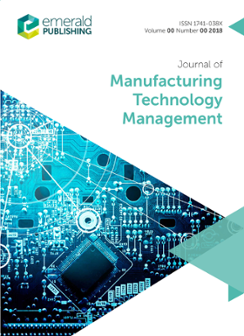Enhance or impair: how does downstream complexity influence supply chain resilience with reconciling effects of intelligent manufacturing?
IF 7.3
2区 工程技术
Q1 ENGINEERING, INDUSTRIAL
引用次数: 0
Abstract
PurposeThe purpose of this paper is to examine the nuanced effects of downstream complexity on supply chain resilience, based on portfolio theory and normal accident theory. Intelligent manufacturing is considered to clarify their boundary conditions.Design/methodology/approachThe ordinary least squares regression was conducted, based on the data collected from 136 high-tech firms in China.FindingsHorizontal downstream complexity has a positive effect on supply chain resilience significantly, while the negative impact of vertical downstream complexity on supply chain resilience is not significant. Contingently, intelligent manufacturing plays a negative moderating role in the relationship between horizontal downstream complexity and supply chain resilience, while it positively moderates the relationship between vertical downstream complexity and supply chain resilience.Originality/valueThis study disentangles the nuanced effects of both horizontal and vertical downstream complexity on supply chain resilience, based on portfolio theory and normal accident theory. It also clarifies their boundary conditions by considering the focal firm's intelligent manufacturing level as the contingent factor.增强或削弱:下游复杂性如何影响供应链弹性与智能制造的协调效应?
本文的目的是基于投资组合理论和正常事故理论,研究下游复杂性对供应链弹性的细微影响。考虑智能制造来澄清它们的边界条件。设计/方法/方法基于136家中国高科技企业的数据,进行了普通最小二乘回归。发现横向下游复杂性对供应链弹性有显著的正向影响,而纵向下游复杂性对供应链弹性的负向影响不显著。同时,智能制造对横向下游复杂性与供应链弹性的关系具有负向调节作用,对纵向下游复杂性与供应链弹性的关系具有正向调节作用。原创性/价值本研究基于投资组合理论和正常事故理论,分析了水平和垂直下游复杂性对供应链弹性的细微影响。并将焦点企业的智能制造水平作为偶然性因素,明确了它们的边界条件。
本文章由计算机程序翻译,如有差异,请以英文原文为准。
求助全文
约1分钟内获得全文
求助全文
来源期刊

Journal of Manufacturing Technology Management
Engineering-Control and Systems Engineering
CiteScore
16.30
自引率
7.90%
发文量
45
期刊介绍:
The Journal of Manufacturing Technology Management (JMTM) aspires to be the premier destination for impactful manufacturing-related research. JMTM provides comprehensive international coverage of topics pertaining to the management of manufacturing technology, focusing on bridging theoretical advancements with practical applications to enhance manufacturing practices.
JMTM seeks articles grounded in empirical evidence, such as surveys, case studies, and action research, to ensure relevance and applicability. All submissions should include a thorough literature review to contextualize the study within the field and clearly demonstrate how the research contributes significantly and originally by comparing and contrasting its findings with existing knowledge. Articles should directly address management of manufacturing technology and offer insights with broad applicability.
 求助内容:
求助内容: 应助结果提醒方式:
应助结果提醒方式:


